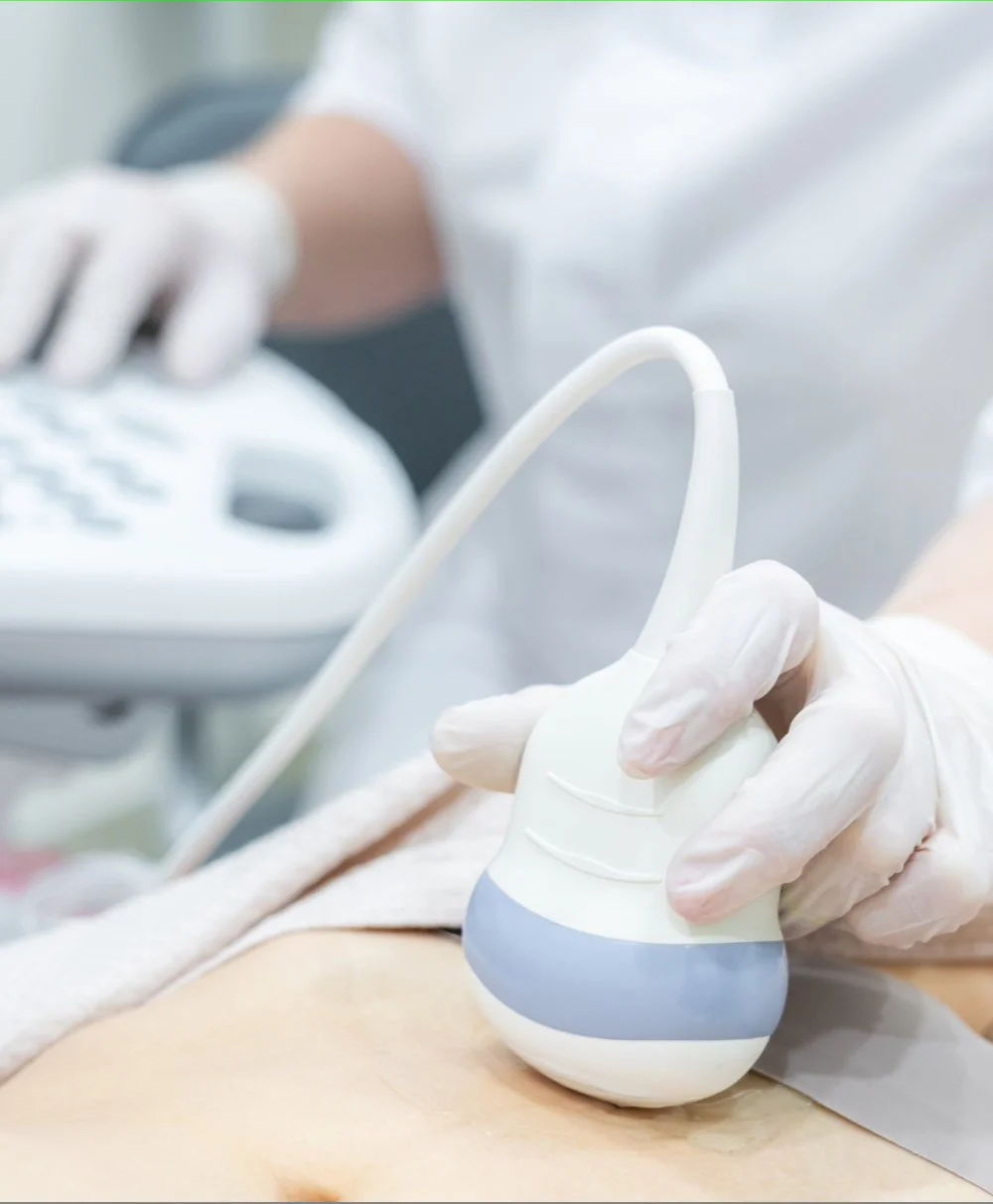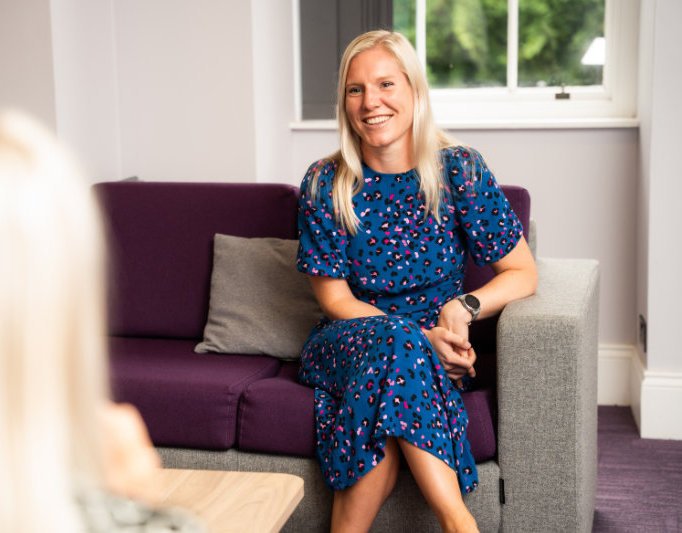Sodium Valproate Compensation Claims
Sodium Valproate Syndrome (also referred to as Fetal Valproate Syndrome) is the name given to a range of physical or mental impairments in children caused by the use of anti-epilepsy or anti-convulsant medications by mothers during pregnancy. In recent years, it’s been discovered that approximately 200,000 individuals in the UK are likely to have used these prescribed medications without proper warning.
In instances where mothers consumed these drugs without complete knowledge of the potential dangers to their unborn children, the consequences for some families have been severe. This has resulted in children, many of whom are now adults, suffering from enduring mental or physical challenges.
If your child has suffered harm due to poor medical care, you may have grounds for a making a sodium valproate compensation claim. We would urge you to call or email our medical negligence team who can help you. Simply hit the blue button below.
arrow_back Back to Medical Negligence
Can you make a sodium valproate compensation claim?
If you’re worried that your child may be suffering from Sodium Valproate Syndrome, then this must be a pretty scary and stressful time for you. We will do all that we can to give you the help and advice that you need, we’ll cut out any legal jargon (or at least explain it properly where we have to use it) and be there to answer your questions. You can call us on 01752 827085 or email us at medneg@nash.co.uk and you’ll be able to speak to one of our expert medical negligence lawyers right away. When it comes to making a sodium valproate compensation claim, they’ll be able to answer any questions you have and discuss options that might be open to you.
If your child has suffered harm due to poor medical care, you may have grounds for a legal claim. This means if you were prescribed Sodium Valproate and were not made aware of the dangers if you were to give birth, then you may be eligible to make a compensation claim.
What is Sodium Valproate Syndrome
Sodium Valproate Syndrome is a health condition that can occur in children whose mothers took a medication called Sodium Valproate during pregnancy. This medication is usually used to treat epilepsy and bipolar disorder. The syndrome includes a range of health problems that can affect a child's development and physical health.
Understanding the Medication
Sodium Valproate has been widely used for many years because it is effective in managing seizures and mood changes. However, there are concerns about its safety for unborn babies. It can interfere with how a baby develops in the womb. Children whose mothers took this drug while pregnant might face various challenges, such as:
Developmental delays
Physical abnormalities
Difficulty in learning
Autism-related conditions
Behavioral issues
Growing Awareness
Research over the years has shown more clearly the dangers of using Sodium Valproate during pregnancy. This has led doctors to be more cautious in prescribing it, particularly to women who could become pregnant. Despite knowing the risks, there have been times when women were not properly warned about the dangers, leading to them not knowing the potential harm to their unborn child.
How can sodium valproate be so dangerous?
Valproate medications, such as Epilim and Epival, pose significant risks when administered during pregnancy. The exposure of unborn children to these drugs can lead to a spectrum of adverse outcomes, with the risk of developmental and physical conditions ranging up to 40%. These adverse outcomes include, but are not limited to, minor physical deformities, significant disabilities like spina bifida, organ anomalies, learning difficulties, and autism spectrum disorders.
In response to these risks, a directive in 2018 prohibited medical professionals from prescribing sodium valproate to women of childbearing age, except under exceptional circumstances where no alternative medication provides effective control of epilepsy. In such rare cases, the prescription of valproate was to be strictly regulated, and must only be prescribed in accordance with the licensing regulations and NICE guidelines. These safety measures include warnings given by healthcare providers, including hospital doctors, general practitioners, and pharmacists to the patient of the risks of pregnancy, and the implementation of a mandatory contraception plan through a pregnancy prevention programme (PPP).
How can negligence happen, with all of these guidelines in place?
It’s a really good question, and the stories that we are being told by clients and others who have children that are affected by sodium valproate are horrific and really concerning.
Negligence in these situations can happen in different ways:
Not Providing Enough Information: If a doctor gives sodium valproate to a pregnant woman or a woman who might become pregnant without clearly explaining the risks, this is considered negligence.
Not Offering Safer Alternatives: If the doctor doesn't suggest or discuss other safer treatment options for conditions like epilepsy or bipolar disorder during pregnancy.
Not Monitoring Properly: If the doctor fails to keep an eye on the health of the pregnant woman and the unborn baby after prescribing Sodium Valproate.
Legal Consequences
For families dealing with Sodium Valproate Syndrome, learning that the condition could have been avoided with the right medical advice is often heartbreaking. Legally, if it can be shown that a healthcare provider did not fulfill their responsibility to care for the patient, the affected families might have the right to receive compensation. This compensation isn't just for medical expenses but also covers the ongoing care, support, and changes needed for the child's quality of life.
Which drugs are involved in sodium valproate compensation claims?
The relevant drug brand names involved, are as follows. If you have been taking these drugs and think you may have a claim, please call us right away on 01752 827085 to speak to a Lawyer and discuss your options.
Epilim
Depakote
Convulex
Episenta
Epival
Kentlim
Orlept
Sodium Valproate
Syonell
Valpal
Belvo
Dyzantil
Rebecca Brisley, Associate Solicitor
call Call us on 01752 827085 for a chat and to arrange a free consultation
The latest situation with Sodium Valproate Compensation - 7th February 2024
Dr. Henrietta Hughes, the Patient Safety Commissioner, has shared her findings on the issues caused by sodium valproate, and we're hopeful this marks the beginning of better news for the children and families who have suffered because of these drugs.
Her report suggests that families with children who have been harmed by these anti-epilepsy medications should receive immediate financial support. The government asked her to explore the possibility of a compensation program for those impacted.
With the release of this report, there's hope that those affected are moving closer to receiving the assistance they need. Yet, we're now waiting on the government, which previously dismissed the idea of a compensation fund, to make a decision.
Dr. Hughes has compared this situation to the Thalidomide scandal, which involved birth defects from a drug used in the 1950s. She pointed out that many children affected by what's known as foetal valproate syndrome face significant challenges, including being unable to work or care for themselves as adults.
Dr. Hughes shared, “I've heard so many heartbreaking stories about the problems they're having in terms of getting access to the medical care that they need, but also the impact that it's had on the parents who have had to give up their work, give up their businesses and stay at home and care for their children."
Who pays to make a Sodium Valproate compensation claim?
Our team of specialist lawyers work on a no-win, no-fee basis. This means that there’s absolutely no financial risk to you or your family. We won’t ask you to make any upfront costs and you won’t have to pay a penny out of your own pocket.
In our free initial consultation, we can explain this more detail how your claim could be funded. We’re also able to answer any other questions that you may still have.
To find out whether you’re able to make a compensation claim please call us on 01752 827085.
You’ll get to speak to one of our lawyers right away, and we can answer some of your questions there and then. We can also get you booked in for a free consultation.
Mike Shiers, Partner, Head of the Medical Negligence team
Why choose Nash & Co Solicitors’ medical negligence specialists?
Our lawyers here at Nash & Co Solicitors in Plymouth are here to help you through a really rough time. Our team will take great care when handling your claim, and as well as being extremely good lawyers, they’re really good people too. They’re sensitive to your situation, and will do all they can to help you.
The team recognises that no two situations are the same. We’ll always put clients first, and ensure that you’re comfortable with everything that’s happening. We’ll never use complicated legal jargon that leaves you wondering what we mean. We’re absolutely and always committed to regular, clear, concise, and easy to understand communication.
Additional Resources connected with Sodium Valproate compensation claims
Support Groups
INFACT - We are the National Campaign Group for Sodium Valproate, and we provide information, advice and support to anyone that has taken Anti Epileptic Drugs (AEDs) in Pregnancy and are concerned it may have affected the foetus during pregnancy.
Link to INFACT’s website here
Epilepsy Action - We are campaigning to raise awareness of the risks and to ensure that women with epilepsy can make an informed decision about their treatment.
Link to Epilepsy Action’s website here
OACS Charity - We are here to support all families touched by Fetal Anti-Convulsant Syndromes. OACS is here to ensure that people living with FACS and their families will experience better recognition, improved public health services, and support.
Link to OACS Charity website here
FACSA - FACSA is a support group for families and children who have been affected by AEDs during pregnancy
Link to FACSA’s Facebook page here Link to FACSA’s website here
News
BBC News website - Wednesday 7th February 2024. News following the Patient Safety Commissioner’s report that recommends establishing a compensation fund asap.
Link to BBC news article
BBC Newsnight - Tuesday February 6th, 2024, Feature on “Scandal bigger than Thalidomide payout”
Link to BBC IPlayer (feature starts immediately)
BBC Newsnight - Tuesday January 30th, 2024. Feature on Sodium Valproate by Victoria Derbyshire.
Link to BBC IPlayer (please skip to 29:33)
Hadley Freeman - My unborn babies’ brush with epilepsy drug danger, The Times, Sunday January 28th, 2024.
Link - Requires a subscription to The Times
PULSE - MHRA reviews risk of autism for children whose fathers took valproate
Link to PULSE’s website here
The Sunday Times - A scandal worse than thalidomide, April 16 2022
Link - Requires a subscription to The Times
BBC Inside Out London - Government documents exposed concerning Sodium Valproate and the defect risk when taken during pregnancy, 22 January 2018
Link to BBC Inside Out London episode on Youtube
Sky News - Valproate risk 'hidden' from pregnant women for decades, 26 September 2017
Link to Sky News
BBC News - Epilepsy drug's safety reviewed over pregnancy risk - 21 September 2017
Link to BBC News article
BBC Panorama - The Truth About Pills And Pregnancy, 1 July 2017
Link to BBC Panorama episode on Youtube
Frequently asked questions
-
A sodium valproate compensation claim is a legal process initiated by individuals or families whose children have developed health issues due to the mother's use of sodium valproate during pregnancy. This claim seeks financial compensation to cover the wide range of challenges these children face, including medical treatments, ongoing care, educational support, and other necessary adjustments to improve their quality of life. The claim acknowledges that the child's condition is a direct result of exposure to sodium valproate and aims to provide relief and support to the affected family.
It’s impossible to give specific answers to most of the FAQs that follow. Each claim is unique, and the specifics of your case will determine the approach and potential outcomes. It's essential to seek expert legal advice as soon as you can to navigate what will inevitably be a complex process, effectively.
-
The claims typically involve drugs containing sodium valproate, such as Epilim, Depakote, Convulex, Episenta, Epival, Kentlim, Orlept, Sodium Valproate, Syonell, Valpal, Belvo and Dyzantil, and other generic versions. These medications are primarily prescribed for controlling epilepsy and managing bipolar disorder. The claims focus on the impact of sodium valproate, regardless of the specific brand of the drug.
-
Parents or legal guardians of children who have experienced developmental or health issues due to prenatal exposure to sodium valproate are eligible to file a claim. Additionally, adults who were exposed to the drug in the womb and have since developed related health problems can also pursue a claim. The key criterion is proving the link between the drug and the health condition.
-
Compensation in these cases is designed to cover a broad range of costs and impacts. This includes medical expenses for treatment and therapy, costs for special education or care needs, compensation for pain and suffering, and potentially lost earnings if the child's condition affects their ability to work in the future. The aim is to provide financial support that reflects the severity and long-term nature of the child's condition.
-
The duration of the legal process in sodium valproate claims can vary significantly. Each claim is unique, and the specifics of your case will probably be very different to someone else’s.
However, we can say that simpler cases where the evidence is clear and liability is acknowledged quickly should obviously be completed in a shorter time frame than other more contentious claims.
Complex and contentious cases, especially those involving disputed facts or requiring extensive medical testimony, can take years. The timeline is also influenced by the legal system's efficiency. -
As with any claim, there are time limits. Generally speaking, any affected child will have until their 21st birthday to bring a claim, unless they are deemed to lack capacity, in which case there might not be a time limit that needs to be adhered to. If your child is approaching their 21st birthday, you should not hesitate to seek legal advice as a matter of urgency.
-
Successful claims require comprehensive evidence. This includes detailed medical records of the mother and child, documentation of the sodium valproate prescription, expert medical evidence linking the drug to the child's condition, and evidence of the impact on the child's life. Witness statements from carers, teachers, and therapists who can speak to the child's challenges and needs are also valuable. The goal is to build a strong case demonstrating the direct connection between the drug and the child's condition.
-
While many compensation claims are settled out of court through negotiations, some cases do go to trial. This usually happens if there's a disagreement over the responsibility for the child's condition or the amount of compensation. Court proceedings can be lengthy and complex, so it's important to be prepared for this possibility, although it's not always necessary.
-
To initiate a claim, the first step is to consult with a solicitor who specialises in medical negligence and compensation claims. They will assess the merits of your case, guide you through the process of gathering evidence, and help you understand the legal framework. The solicitor will then file the claim on your behalf and represent you in all legal proceedings, including negotiations and, if necessary, court appearances.
What our clients say
Related insights
Meet the Medical Negligence team
Get in touch
Fill out the form below and let us know whether you would like us to call you, or email you. One of our Medical Negligence team will be in touch as soon as we can. If your enquiry is urgent then please call us on 01752 827085.
arrow_back Back to Medical Negligence












